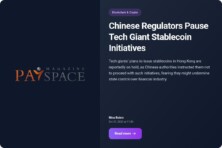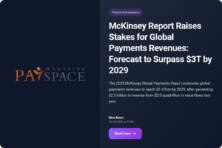Chinese Prime Minister Li Qiang estimates the current state of affairs in the space of the economic system of this Asian country in the context of a positive perception.

The mentioned point of view of the Prime Minister was publicly declared during his meeting with business leaders and economists. At the same time, Li Qiang noted that the situation that has developed in recent months is not absolutely positive in the context of the impact of the external environment circumstances and the prospects for еру further dynamic. Within the framework of these statements, the Prime Minister noted that the difficulties that are barriers in the ambiance of China’s economic growth opportunities are currently showing a rise. The mentioned wording implies that the inflation data increases the constant pressure on the economic system of the Asian country.
According to Li Qiang, despite all sorts of adverse circumstances, negative factors, and some kind of unfavorable manifestations, the condition of the Chinese economy, which is observed today, can be described as stable. At the same time, he noted that the constituent elements of the Asian country’s state existence space have become more complex compared to the characteristics of their configurations in the past. It’s worth noting that in this case implies the recent past. Li Qiang stated that the difficulties that are sources of pressure and other negative effects on the condition of the economic system must be overcome through the application of efforts of a higher degree of intensity.
During a symposium in Beijing last Tuesday, July 9, the Prime Minister said that the leadership of the Asian country should candidly analyze the situation and not avoid problems so as to accurately assess the current state of affairs and make scientific policy decisions. Apparently, in this case, solutions are meant that be classified as the most adequate and constructive in terms of their compliance and validity in the context of the current realities.
Nowadays, China’s economic system, which is the second largest in the world, is facing difficulties related to an uneven recovery. Last year became for this system something like a symbolic period of bright rays of hope that smashed into the twilight of reality. Many experts expected that in 2023 the Chinese economy would be on a trajectory of active growth. This vision of the prospects was based on the somewhat logical assumption that after Beijing’s final abolition of the zero-tolerance policy for coronavirus, which provides for many different kinds of restrictions, including for the business environment and production, there will be a high-intensity recovery. At the beginning of 2023, the Chinese economy really showed what can be called a positive momentum. However, over time, the dynamic of intensive recovery has weakened. It is worth noting that last year the Chinese economy still showed growth. The corresponding indicator was 5.2%. Despite various difficulties, barriers, and unfulfilled expectations of experts about more intensive growth, the mentioned result is positive and exceeds the figures of many other countries and regions. For example, the European Union’s economy rose by 0.7% last year. In the United States, the corresponding growth rate was 2.5%.
Li Qiang and many other representatives of China’s top political leadership believe that in the first half of the current year, the dynamic of the rise of the Asian country’s economic system was stable. They are also confident that Beijing’s goal of economic growth of about 5% in 2024 is a realistic prospect, the materialization of which, in the context of the present circumstances, belongs to the category of a kind of affordable probability.
Next week, as previously planned, the third plenum will be held in China, dedicated to the implementation of reforms and focused on the economic system. In the run-up to this event, Beijing is striving for what can be symbolically described as a radiance of optimism. The path of such a vision of the state of affairs in China’s economic system is complicated by statistical data that signal low demand and weak confidence. The mentioned circumstances existing in the space of objective reality are sources of pressure on the growth prospects of the Asian country’s economy.
The Chinese consumer price index (CPI) rose 0.2% year-on-year in June. In May, this indicator increased by 0.3%. It is worth noting that the June result turned out to be a three-month low. The relevant information was released by the National Bureau of Statistics on Wednesday, July 10.
The Chinese producer price index, which measures the cost of goods at the factory gate, fell 0.8% year-on-year in June. It is worth noting that this indicator has been on a downward trajectory for the 21st month in a row.
Currently, in China, consumers and businesses are adopting a kind of restraint tactic as part of their spending approaches. The corresponding behavior is what can be described as a natural reaction to economic uncertainty. It is worth noting that this uncertainty is not a feature unique to China. Currently, the lack of an unambiguous understanding of the prospects of the future in the unstable circumstances of the present is observed at the global level. In the context of the uncertainty of the coming days, moderation in spending is a constructive model of behavior aimed at minimizing the risks of a difficult financial situation in the framework of the potential implementation of a negative scenario in the economic sense of the future.
It is worth noting that in China, the mentioned actions of consumers and businesses are not only associated with uncertainty. The appropriate behavior tactics are a response to a prolonged downturn in the real estate sector. Also, the choice in favor of this concept of action is associated with the difficult situation in the Chinese labor market.
The CPI of the Asian country has been in the near-zero range since April last year. At the same time, Beijing’s annual target is about 3%.
At the meeting on Tuesday, Li Qiang focused on the need to intensify efforts aimed at solving problems in economic operations. He also stated that scientific decisions should be based on a factual diagnosis of the situation.
Moreover, Li Qiang called for the solid implementation of macroeconomic policies to unleash their effectiveness in promoting development. Also, according to him, the relevant efforts will contribute to full support to the role of enterprises, who can expect targeted policy support to be further strengthened to bring about tech and innovation breakthroughs.
Besides, the Prime Minister called for the reform of so-called unreasonable systems and mechanisms to increase the enthusiasm, initiative, and creativity of all entities. It is worth noting that similar urges were made in May during a rare dialogue with business leaders by the head of the People’s Republic of China, Xi Jinping.
The heads of state-owned enterprises and private entrepreneurs, including tech start-up founders, attended the meeting with the Prime Minister on Tuesday.
A scientist from Beijing, who spoke to media representatives on condition of anonymity, said that this year China’s economic system is likely to show growth of 5% or slightly higher. Also in this context, it was noted that the Prime Minister’s comments are evidence that he is focused on the complexities and deep-entrenched problems. The scientist emphasized that Li Qiang acknowledged the existence of the mentioned problems at a meeting with business representatives and experts, and not with officials. According to the media interlocutor, in this case, the Prime Minister demonstrated a kind of gesture to assure entrepreneurs of awareness of their difficulties and complaints. It was also noted that Xi Jinping instructed Li Qiang to run the economy.
A scientist from Beijing says that the statements of the Prime Minister, compared with the rhetoric of the head of the People’s Republic of China at the May meeting, more reflect headwinds and problems. According to the media interlocutor, Li Qiang attempted to reassure the business that its problems were not ignored and restore confidence. The scientist also stated that before the plenum, increased expectations were recorded regarding the policy of reforms and their implementation.
Peng Peng, executive chairman of the Guangdong Society of Reform think tank in Guangzhou, said during a conversation with media representatives that China’s top leadership is well aware of the challenges and expectations. According to the expert, expectations are currently particularly high that strong measures on reform and effective economic policy will be taken at the plenum. Peng Peng says that China’s economy is on a growth trajectory, but at the same time, the current state of affairs in the consumer sector does not generate any reason for optimism. According to the expert, the mentioned factor is reflected not only in the weak increase in retail sales but also in the sluggish CPI. Peng Peng says that Chinese residents demonstrate moderation in spending due to factors such as pessimistic expectations about the employment situation, a negative vision of the future of the dynamic of income, and strong doubts about the prospects for business profitability. According to the expert, the mentioned state of affairs is a source of pressure to achieve the growth target of the Asian country’s economy.
Returning to the topic of the prospects for the rising of the economy of China, it should be noted that in this case deflation and the problems generated by the corresponding scenario may become a significant factor of negative impact. In the consumer sector, this state of affairs will mean that people will refrain from making purchases, waiting for the subsequent price drop. The implementation of this scenario may diminish consumption and harm business.
Zhiwei Zhang, chief economist at Pinpoint Asset Management, says China’s deflation risk shows no signs of abating. According to the expert, in the long term, Beijing may face the need to take measures to rebound domestic demand to stimulate the economy.
Woei Chen Ho, an economist at United Overseas Bank Ltd., said weak prices increase the likelihood that the People’s Bank of China will begin to ease its monetary policy strategy shortly. Such measures include cutting interest rates and downward revision of the requirement for the amount of money that financial institutions must keep as reserve funds.
It is worth noting that so far the People’s Bank of China has refrained from easing monetary policy. The corresponding position of the financial regulator of the Asian country is related to the fact that the mentioned measures may cause a weakening of the yuan exchange rate. If the Federal Reserve is the first to begin easing monetary policy, the People’s Bank of China will have some kind of room for maneuver. At the same time, the financial regulator of the United States has so far been in no hurry to lower the cost of borrowing. Officials of the US central bank adhere to the consensus view that to ease monetary policy, more data should be obtained indicating a steady movement of inflation towards the 2% target.
China’s onshore yuan was at 7.2762 versus the dollar on Wednesday.
Investors are currently taking a kind of wait-and-see attitude regarding actions in the Asian country. They are waiting for the plenum to receive information about Beijing’s long-term plans to address a wide range of issues.
As we have reported earlier, China’s Demographic Situation Causes Economic Headwinds.









